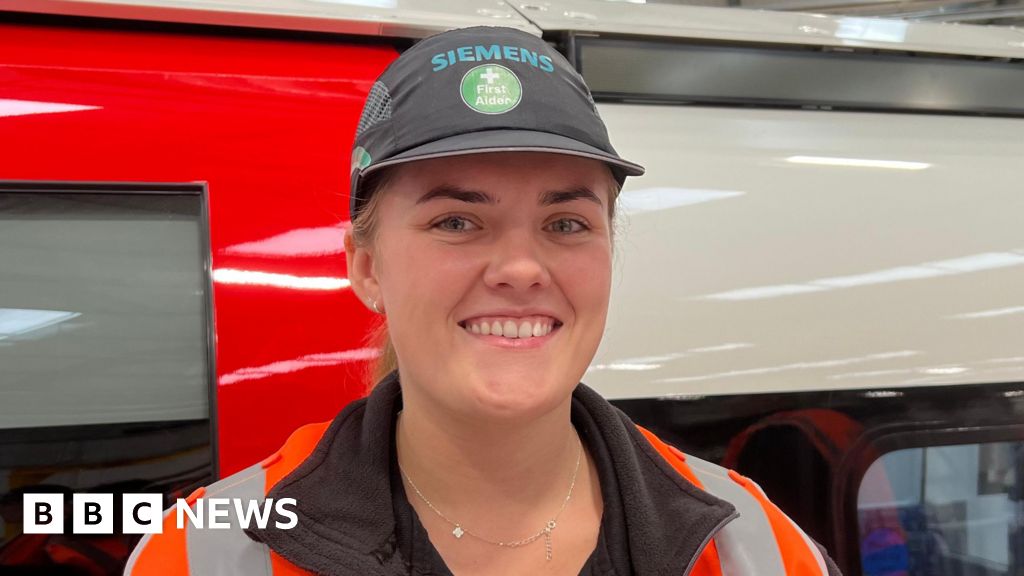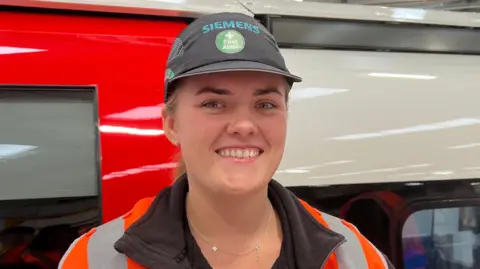 Pritti Mistry/BBC
Pritti Mistry/BBCA multimillion-pound rail factory creating 700 jobs is set to give an East Yorkshire town a “bright future for the next 60 years”, bosses have said.
Siemens said the production of commuter trains for UK operators, including Transport for London, was already under way at its Goole facility.
The site, near the M62, has been officially opened by Secretary of State for Transport Louise Haigh and Mayor of London Sadiq Khan during an event on Thursday.
Haigh described the facility, which forms part of the town’s £200m rail village, as “impressive” and “world-class”, adding it will “provide a boost to the region’s economy”.
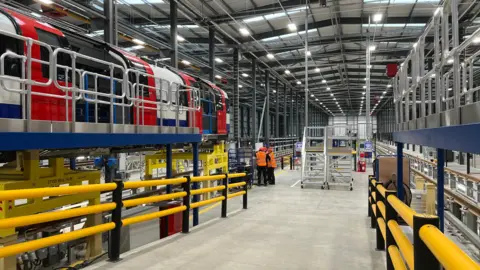 Pritti Mistry/BBC
Pritti Mistry/BBCWork on assembling the first 10 trains for London Underground’s Piccadilly Line began in March and are expected to be in service from 2025.
Sambit Banerjee, joint chief executive of Siemens Mobility, said there was a “lot of excitement” as he expected the plant would create “long-term sustainability and employability”, enabling Goole to have a “bright future for the next 60 years”.
“We’ll assemble 80% of London’s new Piccadilly line trains and all future Siemens’ trains for the UK, including our Verve battery train, here in Goole and I’m pleased that we are supporting the local supply chain in the process.”
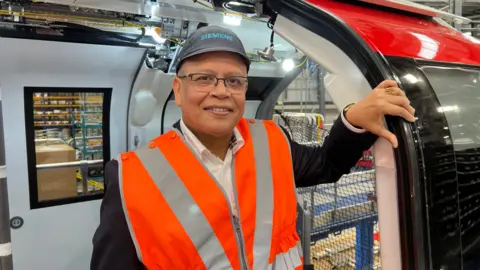 Pritti Mistry/BBC
Pritti Mistry/BBCOn top of the predicted 700 jobs, about 2,500 are expected to be created in the supply chain.
Mr Banerjee also announced the creation of a further 300 posts in subsequent years, with an additional £40m being pumped into the rail village for another assembly, logistics and service centre.
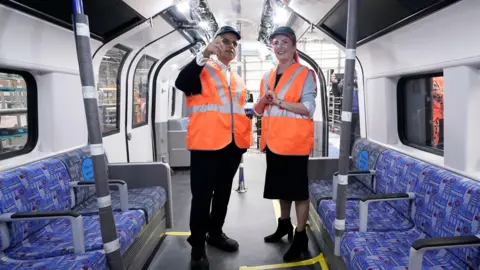 Pritti Mistry/BBC
Pritti Mistry/BBCSecond-year apprentice Jade Anderton, 23, from Doncaster, said an apprenticeship seemed the perfect choice for her next career move after spending five years in the navy.
“It’s quite cool to be working on one of these cars and seeing the future,” she said.
“It’s all new, so we are all growing together and in the same situation, which is nice. By the end of next year I hope to be a fully qualified fitter working on these cars.”
Finbarr Dowling, head of localisation at Siemens, said the facility was “much more than assembling world-class trains” with long-term benefits to the town’s economy and infrastructure including plans for a new hotel.
“What we’d hope is that the Siemens’ investment here has brought an economic benefit, whether it’s the use of local accommodation, local hotels or restaurants,” he said.
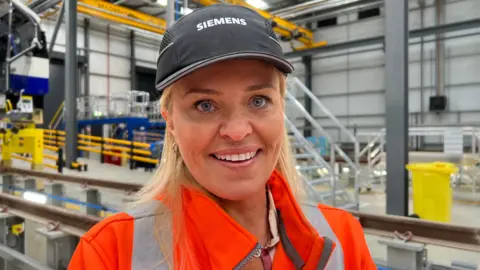 Pritti Mistry/BBC
Pritti Mistry/BBCOperations support manager Natalie Thornton, 53, from Hull, started her engineering career as an apprentice with BAE Systems and joined Siemens after she was made redundant.
Ms Thornton said the new facility had “brought hope to this area” and was expecting to see similar employment and economic benefits achieved in Hull via a turbine blade factory.
“It feels like it’s an underdog part of the world here. I sometimes feel we’re left behind in certain things.
“There’s a lot of educated, skilled people in this area that need an opportunity and Siemens have given that.”

